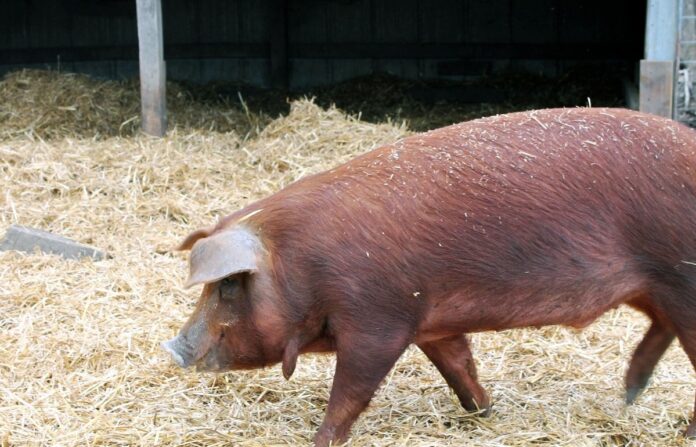The most common pig breeds for commercial pig production are the Yorkshire, Landrace, Hampshire, Duroc, and Tibetan, Tamworth and their crosses. These breeds produce lean meat combined with efficient feed conversion (3 kg of good feed is needed to produce 1 kg of pork). However, these breeds are relatively not as resistant to diseases as the local breeds. Moreover, they suffer more from hot weather and low feed quality compared to local pig breeds. (FAO)
We look at the common choices when it comes to commercial pig production.
Read also: Rabbit Breeds (With Pictures) For Good Commercial Rabbit Production
Duroc
Originating in America, the Duroc is known to be part of many of the crosses in commercial pork production hogs. Durocs are a pretty reddish-brown colour and fairly agreeable in temperament. Originally one of the larger breeds of market hogs but now rating in the medium size range. Most of our pigs are Duroc or Duroc Cross and we have found them to be most pleasant as Sows, with good mothering tendencies. The piglets wean easily and forage at an early age. The meat is tender, with a great flavour from the vegetable, hay and foraging diet. Many of our pigs have Yorkshire cross in them, adding to the good disposition and foraging ability.
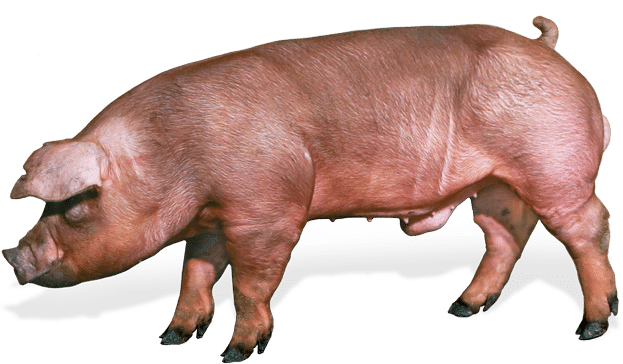
Hampshire
The Hampshire pig breed is one of the earliest recorded breeds in America, bred in Kentucky. Originally imported from Scotland and England as the Old English Breed. The name was changed to Hampshire along the way. They are black with a white strip of belting around the shoulders and body which can reach down the front legs. A smaller leaner pig, the Hampshire has a large loin and lower back fat amount than other breeds.
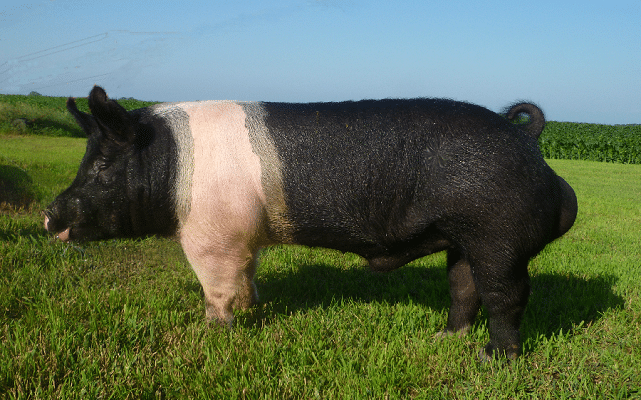
Yorkshire
Also called English Large White, this breed originated from England. American Yorkshire is a good meat producer. It is also considered a bacon breed. Yorkshires produce a high percentage of lean meat on the carcass and a low amount of backfat. The American Yorkshire was improved over the years by introducing lines of Yorkshire from Canada and Lines of English Large White from England. The breed is also known for farrowing large litters.
Read also: 5 Commercial Fish Types For Productive Fish Farming In Africa
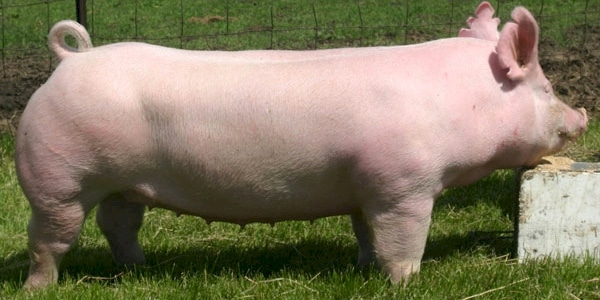
Landrace
Landraces are white with ears that droop and slant forward with the top edges nearly parallel to the bridge of a straight nose. They are the fifth most recorded breed in the United States, they are known for large litters of piglets. They are known for their ability to cross well with other breeds and they produce a large and flavourful ham and loin.
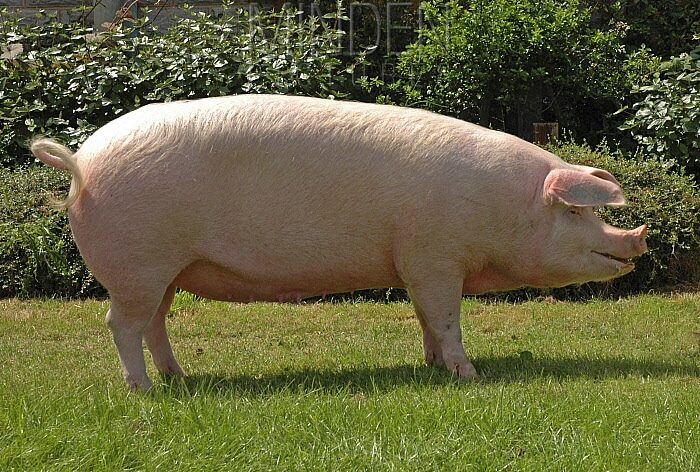
Hereford
Hereford pigs are another heritage breed of hog. Often the choice of 4H participants is because they are gentle, lean, good looking pigs. They are also easy to find in the USA. They’re ready to butcher right about at 6 months of age, with a hanging weight of about 80-90kg. Herefords as a breed are derived from Duroc, Chester White and Poland China breed in the 1920s. The mature weight for Boars is about 360kg and Sows at 270kg.
Read also: 10 Productive Chicken Breeds for Backyard and Commercial Production
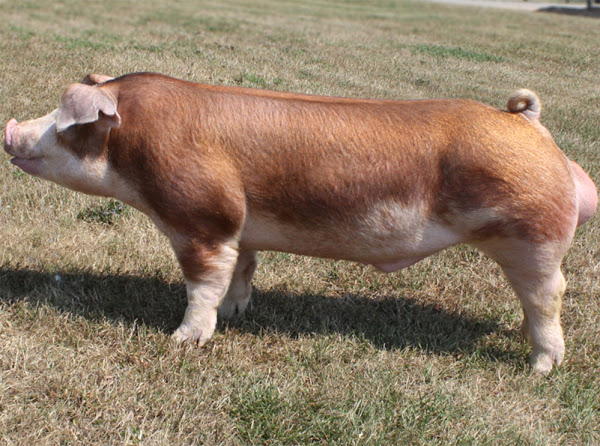
Berkshire
Berkshire pigs are one of the oldest heritage breeds of hogs. Originally from the Berk area in England, the Berkshires are a popular choice for meat production and possess an easy-going personality. They have a 270kg average market weight which they can easily obtain with foraging. Berkshire pigs are hardy and considered easy keepers.
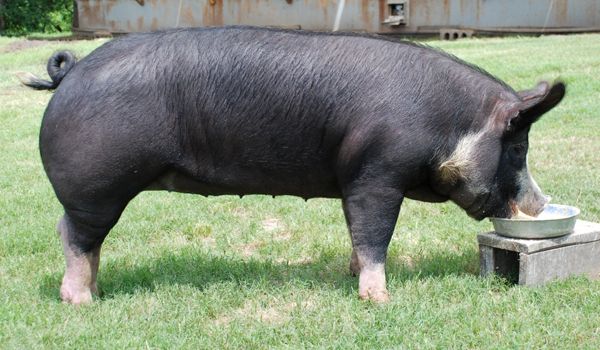
Tamworth
Smaller size than some others mentioned here. Often referred to as one of the bacon producing breeds due to the lean carcass and ability to forage well. The Tamworth pig originated in England. The colour is a range of red and anything light to dark is acceptable. Spots are not desirable in the Tamworth.
Read also: Selecting Quality Breeding Stock for Livestock Production
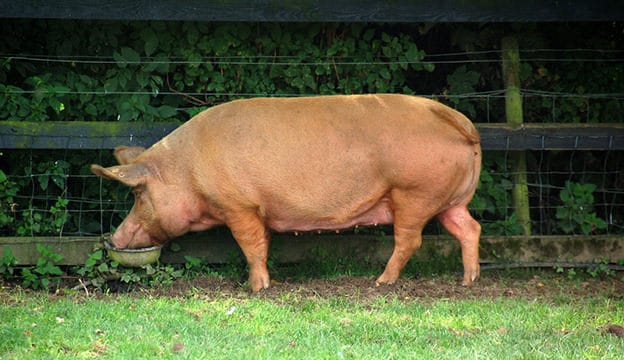
Chester White
Chester Whites are popular with pig farmers for a couple of important reasons. They make great mothers and they live long lives. The colour should be all white with only small spots of colour permissible. The ears on Chester White are not erect but are not completely floppy like the Large Black either. They have good mothering ability and hardiness. Chester Whites are stockily built and have carcass high in muscles.
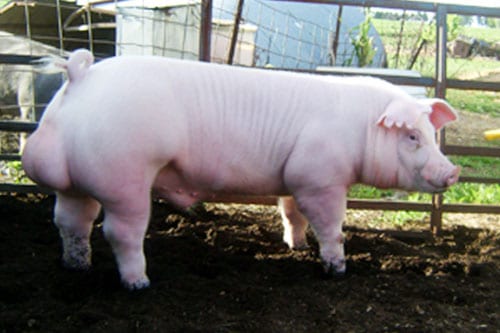
Tibetan
The Tibetan breed of pig is specially adapted to the high hills, cold climate and to being on pasture all year round. It has light body weight (mature wt about 35 kg .) Black hair coat, with long and dense bristles Highly developed digestive organs; the length of the intestine is about 36 times its own body length. Ability to deposit fat in the body. The internal and visceral fat is about 15 percent of body weight. Muscles with a marble appearance and meat with a special flavour. Low prolificacy, with an average litter size of 5, weaning percent of 69, and 5 pairs of teats.
Read also: Pig Production and Management in Ghana Detailed Guide
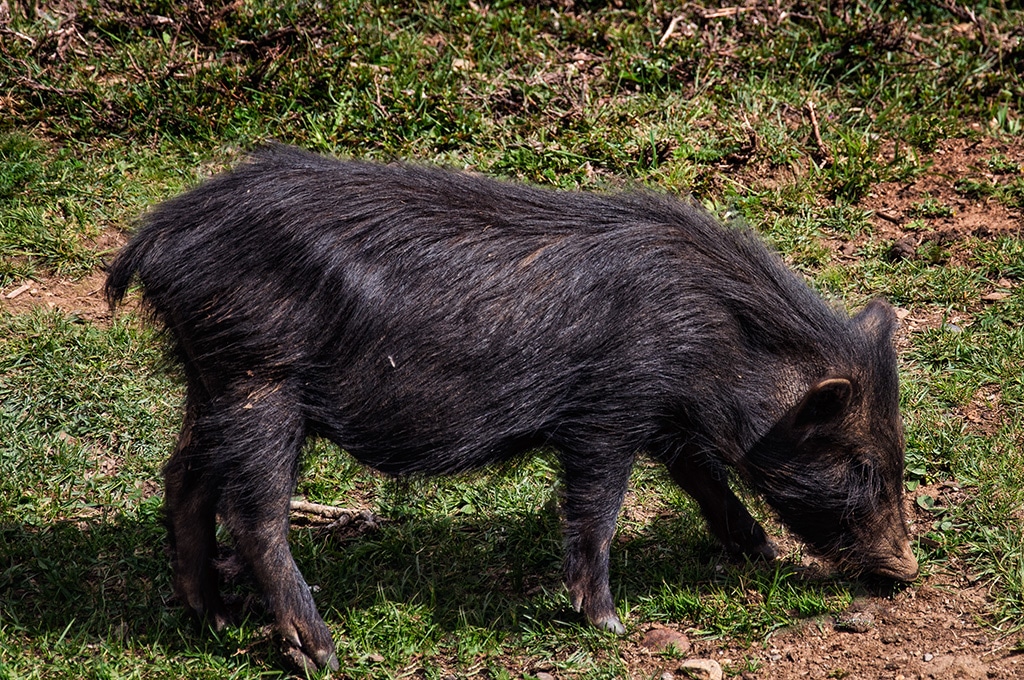
Large Black
The Large Black pig breed is hardy and adaptable. It is a lean pig that does well foraging. The Large Black pig has made a comeback with people interested in raising pastured pork. At one time in England, the Large Black was the most popular breed. The popularity of the breed was due to the delicious meat and bacon it produced from mostly foraging. When choosing a Large Black pig you might fall in love with the way the floppy ears fall down over the eyes.
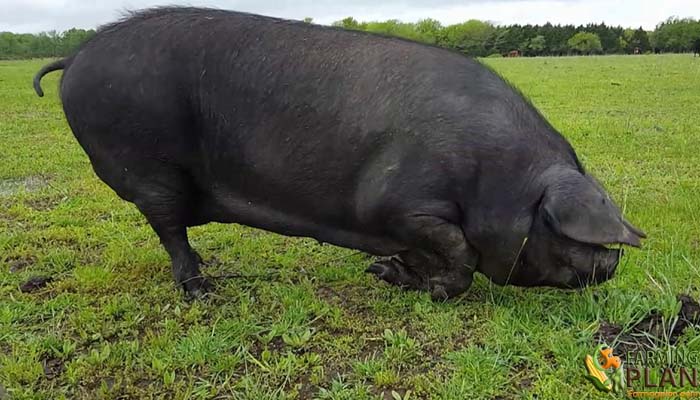
In summary
For wider preference and selective benefits, you may want to consider crosses of these breeds.
References:
10 Pig Breeds for the Homestead – (iamcountryside.com)
Farmer’s Hand Book on Pig Production – (FAO)
Fun Facts About Pork – (kfb.org)
